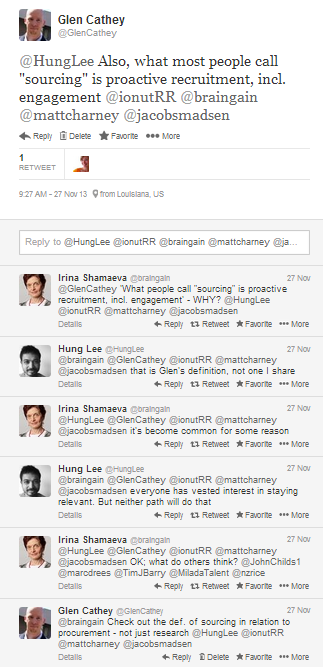 What better time than at the beginning of a new year to take a critical look back at where we’ve come from, to reflect on our current state and to look forward to a next step in the evolution of sourcing?
What better time than at the beginning of a new year to take a critical look back at where we’ve come from, to reflect on our current state and to look forward to a next step in the evolution of sourcing?
It believe it would certainly be helpful and beneficial to have a universally agreed upon definition of exactly what sourcing is. If you’ve attended any sourcing and/or recruiting conferences, it doesn’t take long to notice people using “sourcing” to describe different types of activities. When anyone talks about the sourcing function at their company, it immediately begs the question of exactly what the sourcers are tasked with. Do they find people and pass them on to recruiters to contact, or do they also engage the people they find? The same goes for hiring sourcers – one of the first questions is always whether or not they will be responsible for engaging potential candidates.
Am I the only person who thinks this is a bit absurd, if not just unhelpful and annoying?
The fact that there is no universally agreed upon definition of what sourcing is when it comes to talent acquisition has always bothered me. Don’t you think it’s well past time to move the ball forward and make the attempt to develop a single definition of “sourcing?”
Historically, sourcing was typically used to refer to talent identification only – name generation, org charting, finding resumes and social profiles, etc. However, I have noticed over the past few years that more people and companies are starting to use sourcing to describe both the identification and the engagement of talent, which aligns with what I’ve always believed sourcing to be.
Let’s take a look at other people’s opinions on what sourcing is and leverage what sourcing is considered to involve when it comes to procurement to see if we can achieve some parity before I share with you my proposed definition of sourcing. Continue reading →
